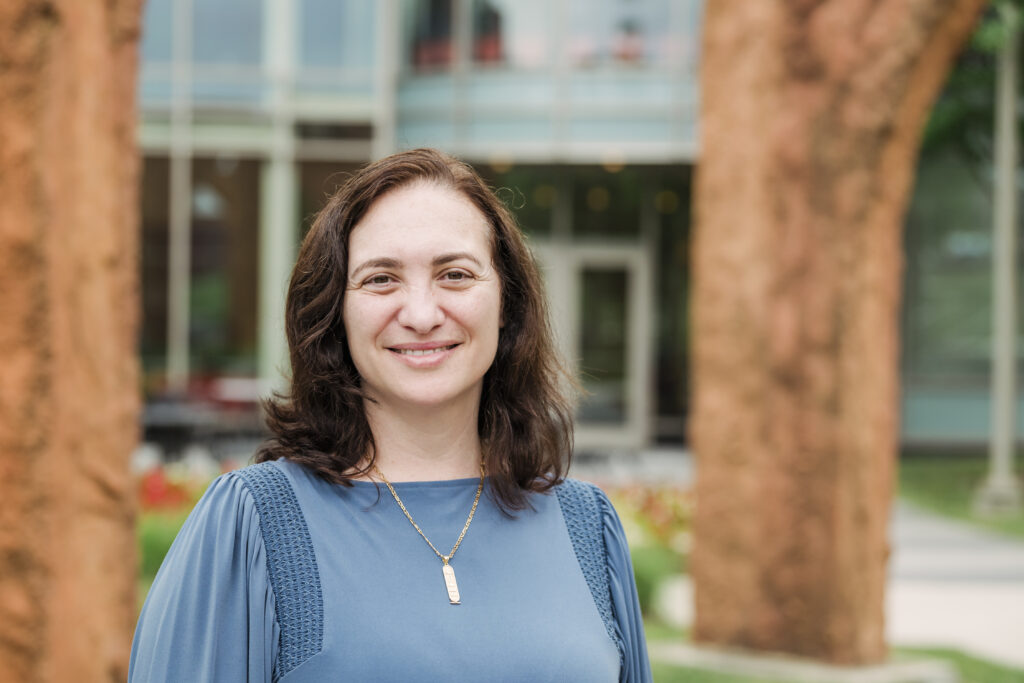Go offline with the Player FM app!
Loren Henderson, University of Maryland Baltimore County – Centering The Voices of Black Farmers
Manage episode 430092420 series 2459839
 The COVID-19 pandemic was difficult to navigate for farmers of color.
The COVID-19 pandemic was difficult to navigate for farmers of color.
Loren Henderson, associate professor of public policy and incoming director of the school of public policy at the University of Maryland Baltimore County, centers their voices.
Henderson’s research interests include diversity issues, stratification and inequality, health disparities, race, class, gender, and sexuality. She is the current executive officer of the Association of Black Sociologists (2021-Present). Listen to Dr. Henderson talk about her research on the experience of Black farmers during COVID-19 on the Minority Land Owner Magazine podcast. Read about her work with Black mothers in Chicago in The Conversation. “Black mothers trapped in unsafe neighborhoods signal the stressful health toll of gun violence in the U.S.,” (2023), “I’m a Black sociologist, and a mom – by listening to other Black mothers, I’ve learned about their pandemic struggles and strengths” (2022)
Her books include Race, Ethnicity, and the COVID-19 Pandemic (University of Cincinnati Press 2023) a collection of essays that examine the socioeconomic impact of COVID-19 and how it disproportionately affected Black, Latino, and Native American populations in the US. and Diversity in Organizations: A Critical Examination. (New York: Routledge, 2015)
Centering The Voices of Black Farmers
https://academicminute.org/wp-content/uploads/2024/07/07-22-24-UMBC-Centering-The-Voices-of-Black-Farmers.mp3Survival can be a challenge for any farmer. However, for generations, Black farmers have faced extinction. The U.S. percentage of Black farmers has decreased from 14% in 1920 to 1.2% in 2022. In part due to land theft, inadequate succession planning, systemic racism, and discriminatory USDA policies and practices. The historical weight of the problem is evidenced by the Biden Administration’s attempts to deliver relief to Black farmers. Some say successful (Inflation Reduction Act). Others say not (debt cancellation). Many say not enough.
During COVID-19, I became interested in understanding how Black Farmers were sustaining and growing their farms. I conducted 50 in-depth virtual interviews with Black farmers in the US. The project addressed Black farmers’ expertise and experiences with establishing and maintaining farms under the onslaught of systemic racism and COVID-19. Additionally, I asked the farmers about their use of governmental and private financial resources and their understanding of social policies that impact their ability to establish or maintain their farms.
Preliminary findings suggest that Black Farmers, like all Americans, were facing the terror and confusion of COVID-19; However, these Black farmers were simultaneously battling the effects of historical and contemporary systemic racism. To maintain both their physical and financial well-being farmers engaged in shift-and-persist coping strategies to counter the deleterious consequences of both racism and COVID-19.
The post Loren Henderson, University of Maryland Baltimore County – Centering The Voices of Black Farmers appeared first on The Academic Minute.
284 episodes
Manage episode 430092420 series 2459839
 The COVID-19 pandemic was difficult to navigate for farmers of color.
The COVID-19 pandemic was difficult to navigate for farmers of color.
Loren Henderson, associate professor of public policy and incoming director of the school of public policy at the University of Maryland Baltimore County, centers their voices.
Henderson’s research interests include diversity issues, stratification and inequality, health disparities, race, class, gender, and sexuality. She is the current executive officer of the Association of Black Sociologists (2021-Present). Listen to Dr. Henderson talk about her research on the experience of Black farmers during COVID-19 on the Minority Land Owner Magazine podcast. Read about her work with Black mothers in Chicago in The Conversation. “Black mothers trapped in unsafe neighborhoods signal the stressful health toll of gun violence in the U.S.,” (2023), “I’m a Black sociologist, and a mom – by listening to other Black mothers, I’ve learned about their pandemic struggles and strengths” (2022)
Her books include Race, Ethnicity, and the COVID-19 Pandemic (University of Cincinnati Press 2023) a collection of essays that examine the socioeconomic impact of COVID-19 and how it disproportionately affected Black, Latino, and Native American populations in the US. and Diversity in Organizations: A Critical Examination. (New York: Routledge, 2015)
Centering The Voices of Black Farmers
https://academicminute.org/wp-content/uploads/2024/07/07-22-24-UMBC-Centering-The-Voices-of-Black-Farmers.mp3Survival can be a challenge for any farmer. However, for generations, Black farmers have faced extinction. The U.S. percentage of Black farmers has decreased from 14% in 1920 to 1.2% in 2022. In part due to land theft, inadequate succession planning, systemic racism, and discriminatory USDA policies and practices. The historical weight of the problem is evidenced by the Biden Administration’s attempts to deliver relief to Black farmers. Some say successful (Inflation Reduction Act). Others say not (debt cancellation). Many say not enough.
During COVID-19, I became interested in understanding how Black Farmers were sustaining and growing their farms. I conducted 50 in-depth virtual interviews with Black farmers in the US. The project addressed Black farmers’ expertise and experiences with establishing and maintaining farms under the onslaught of systemic racism and COVID-19. Additionally, I asked the farmers about their use of governmental and private financial resources and their understanding of social policies that impact their ability to establish or maintain their farms.
Preliminary findings suggest that Black Farmers, like all Americans, were facing the terror and confusion of COVID-19; However, these Black farmers were simultaneously battling the effects of historical and contemporary systemic racism. To maintain both their physical and financial well-being farmers engaged in shift-and-persist coping strategies to counter the deleterious consequences of both racism and COVID-19.
The post Loren Henderson, University of Maryland Baltimore County – Centering The Voices of Black Farmers appeared first on The Academic Minute.
284 episodes
All episodes
×Welcome to Player FM!
Player FM is scanning the web for high-quality podcasts for you to enjoy right now. It's the best podcast app and works on Android, iPhone, and the web. Signup to sync subscriptions across devices.




